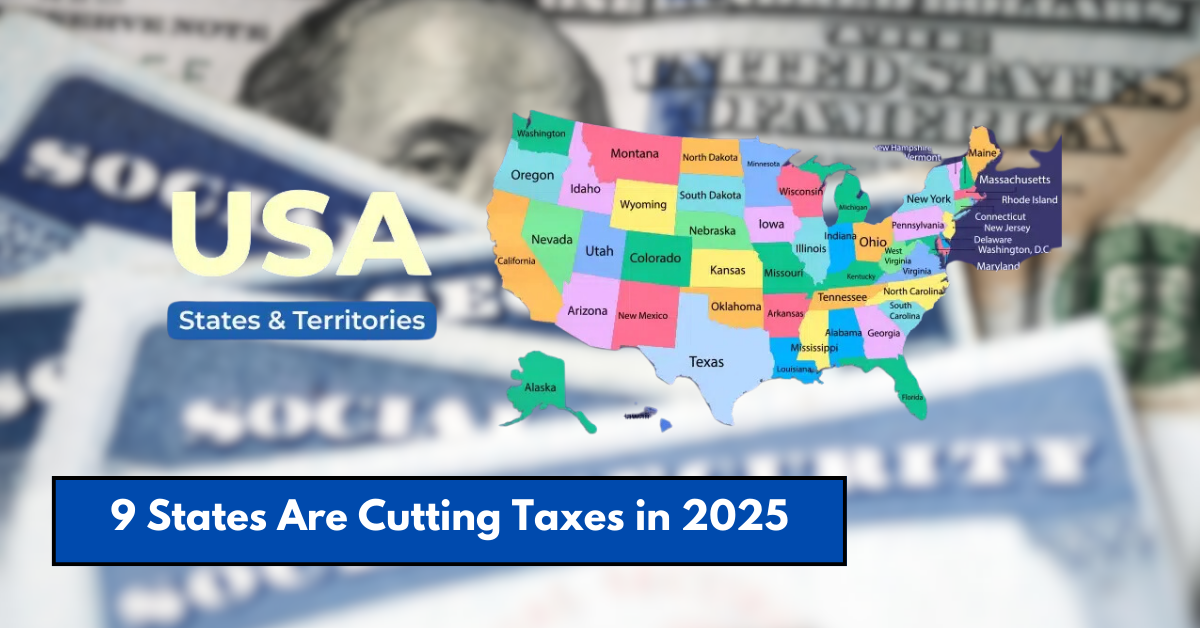In 2025, Americans across several states will see changes to their tax landscape. Many states are cutting income tax rates and revising rules on Social Security benefit taxation to ease financial burdens, particularly for retirees. These updates are part of ongoing efforts to improve tax systems, attract businesses, and support residents. Let’s explore these changes in detail.
Why Are States Reducing Taxes?
The trend of reducing taxes started during the pandemic when many states found themselves with surplus tax revenues. Legislators, especially in states with Republican-led governments, believe that lowering taxes helps make their states more competitive, encouraging businesses and individuals to settle there.
While tax reductions may bring financial relief, critics warn they could limit funding for public services. Groups like the Institute on Taxation and Economic Policy (ITEP) have called this trend part of an “anti-tax playbook,” urging caution about the potential long-term impacts.
States Lowering Income Tax Rates in 2025
According to an analysis by the Tax Foundation, nine states will reduce individual income tax rates starting January 1, 2025. These reductions aim to make tax codes more growth-oriented and stable, enhancing each state’s appeal to new residents.
While specifics vary, these changes reflect a broader effort to simplify tax systems while reducing the financial burden on citizens.
Social Security Tax Updates: Relief for Retirees
Retirees relying on Social Security will also see changes this year, as several states eliminate or reduce taxes on these benefits. In 2024, Missouri and Kansas ended their taxation of Social Security benefits. By 2025, only nine states will continue taxing these benefits, although most offer income-based exemptions.
Here’s an overview of states that still tax Social Security benefits and the relief measures available:
1. Colorado
- Starting in 2025, individuals aged 55–64 with an adjusted gross income (AGI) of $75,000 or less, or couples filing jointly with an AGI of $95,000 or less, can deduct the federal taxes they paid on Social Security benefits.
2. Connecticut
- Single filers with an AGI under $75,000 and couples filing jointly with an AGI under $100,000 will be exempt from Social Security taxes.
3. Minnesota
- Couples with an AGI below $105,380 and single filers with an AGI below $82,190 are eligible for a full exemption.
4. Montana
- Single filers with an AGI under $25,000 and couples with an AGI below $32,000 can deduct Social Security benefits from state taxes.
5. New Mexico
- Individuals with an AGI below $100,000 and married couples earning less than $150,000 are exempt from taxes on their benefits.
6. Rhode Island
- Single filers with an AGI under $88,950 and couples earning less than $111,200 annually are not taxed on Social Security benefits.
7. Utah
- Single filers with annual incomes below $30,000 and couples with combined incomes under $50,000 can avoid taxes on Social Security.
8. Vermont
- Single filers with an AGI under $50,000 and married couples earning less than $65,000 will not face taxes on these benefits.
9. West Virginia
- West Virginia is gradually phasing out Social Security taxes. By 2025, there will be a 65% reduction in taxation, with complete elimination planned by 2026.
States Eliminating Taxes on Social Security Benefits
Missouri and Kansas took a significant step by stopping taxation on Social Security benefits in 2024. Their decision leaves just nine states taxing these benefits, albeit with substantial exemptions for lower-income individuals and couples.
This shift reflects a growing trend among states to provide financial relief to retirees, especially those living on fixed incomes.
Why These Changes Matter
For retirees, the taxation of Social Security benefits can significantly impact their financial well-being. States that offer exemptions or eliminate these taxes provide much-needed relief, allowing seniors to stretch their savings further.
Additionally, reducing income tax rates across the board makes states more attractive for families and businesses, potentially boosting their economies in the long run.
Conclusion
The year 2025 brings significant tax changes for Americans, particularly retirees. With nine states reducing income tax rates and many others revising their approach to Social Security taxation, individuals may find financial relief in the coming years. However, it’s essential to stay informed about your state’s specific tax laws and exemptions to plan effectively for the future.
This article has been carefully fact-checked by our editorial team to ensure accuracy and eliminate any misleading information. We are committed to maintaining the highest standards of integrity in our content.
Filza specializes in simplifying financial topics for everyday readers. Whether breaking down Canada’s tax guides or U.S. benefits like SNAP and VA Disability, Filza’s relatable writing style ensures readers feel confident and informed. Follow her insights on LinkedIn or reach out via email at shewrites.health@gmail.com.
